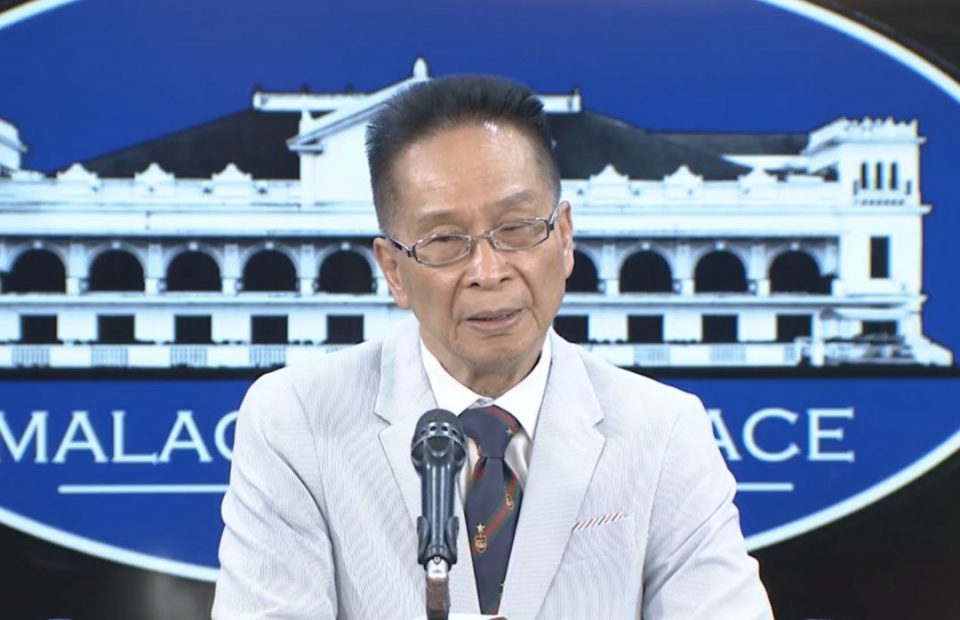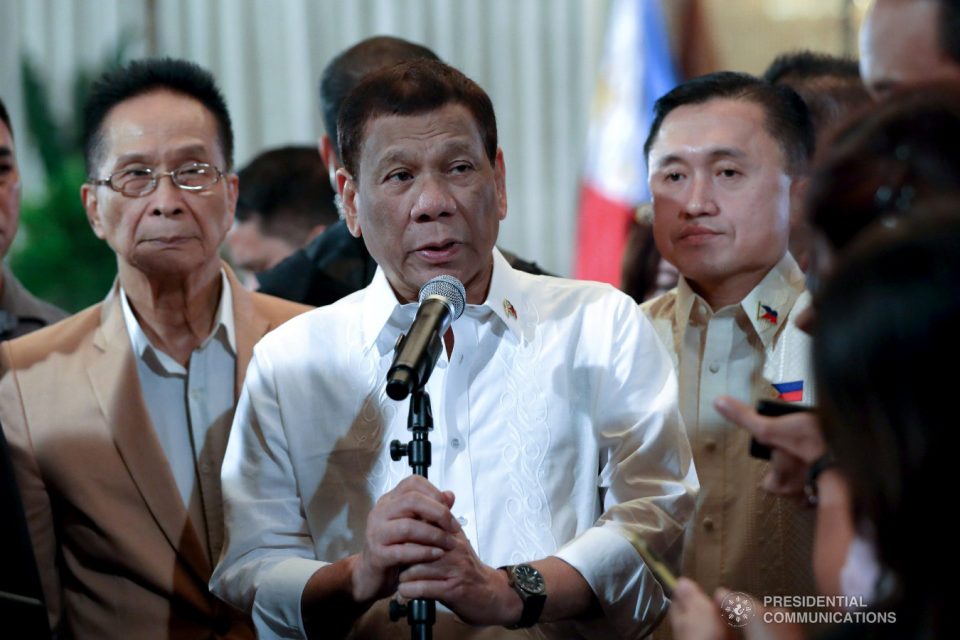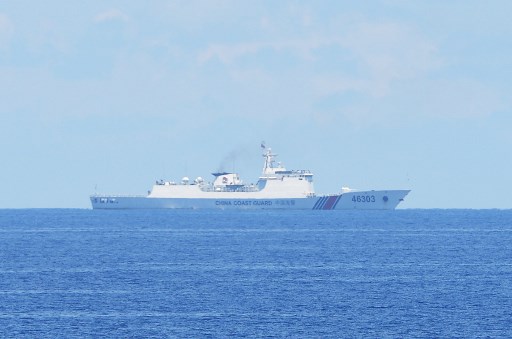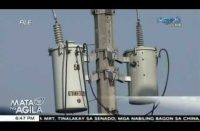
(Eagle News) — Malacanang described as “fallacious” arguments made by critics of President Rodrigo Duterte that he was surrendering the country’s sovereignty by not pressing China to recognize and abide by the 2016 arbitral ruling on the South China Sea.
In a press briefing, Presidential Spokesperson Salvador Panelo also reminded critics, including Supreme Court Senior Associate Justice Antonio Carpio, that the proper way in reading the Constitution was not to read one provision in isolation, but in relation to its other provisions.
“It is absolutely fallacious to argue that the President is surrendering our sovereignty by not aggressively pursuing the arbitral ruling in our favor rendered by the Permanent Court of Arbitration,” he said Tuesday.
“Let me remind the critics, the issue here is not about which country has a better claim based on its constitution or laws, nor it is the enforcement of our upheld rights which unfortunately until now, no entity or country is inclined to perform,” he said.
Panelo said that President Duterte as head of state is working on ensuring the security of all Filipinos, and this includes resorting to peaceful and diplomatic ways that would not trigger aggression or an armed conflict.
-The real issue-
“What is the issue? The issue is: How to go about getting the benefits without endangering the lives of our countrymen and bringing us to the precipice of war?”
“Now, the President as head of state with only the well-being and security of the Filipino people in mind and in his heart, believes that aggressively enforcing the arbitral award will only precipitate or trigger an armed conflict that could escalate into continuing bloody encounters detrimental to the national interest. Hence, he has resorted to diplomatic negotiations that may reap the desired windfall from the arbitral ruling,” he explained.

Panelo reminded critics that before the President assumed power, Filipinos could not even fish in Scarborough Shoal even if this was within the country’s EEZ.
He said China drove away Filipinos who could not fish anymore in Scarborough or Panatag shoal in 2012 during the Aquino administration and even after the 2016 arbitral ruling.
But he said President Duterte’s “measured tact” and diplomacy with China allowed Filipino fishermen to fish again in the disputed shoals.
-Scarborough Shoal case cited-
“If you remember before in the Scarborough, we could not fish; our fishermen were being driven away but after that agreement with the President they’re not being molested,” Panelo noted.
Scarborough Shoal is among the various disputed shoals in the South China Sea which are being claimed by countries other than the Philippines, including China and Taiwan.
The Philippines had asserted that the EEZ claim on the waters around Scarborough Shoal was different from the sovereignty exercised by the country on the shoal itself.
China, on the other hand, claims the shoal was first discovered by the Chinese in the 13th century and that it was historically used by Chinese fishermen.

China had rejected the 2016 Hague ruling on the South China Sea. It did not participate in the arbitration proceedings which was initiated by the Philippines and did not appoint any agent to represent China, according to the Permanent Court of Arbitration (PCA).
In a Note Verbale to the international court, the PCA, on August 1, 2013, and throughout the arbitration proceedings, China reiterated “its position that it does not accept the arbitration initiated by the Philippines.”






